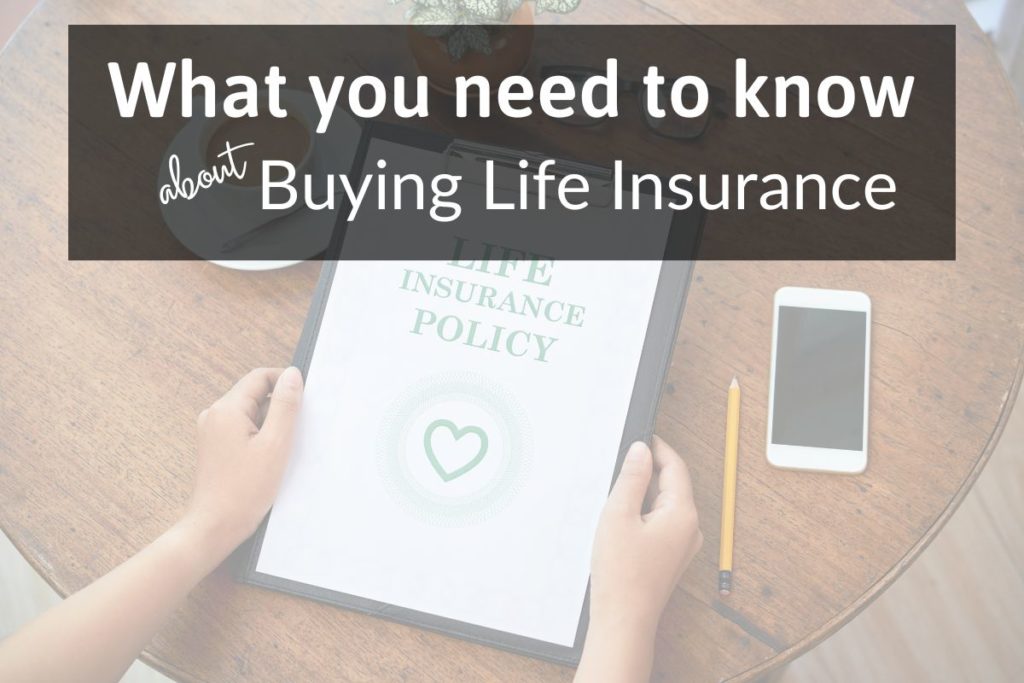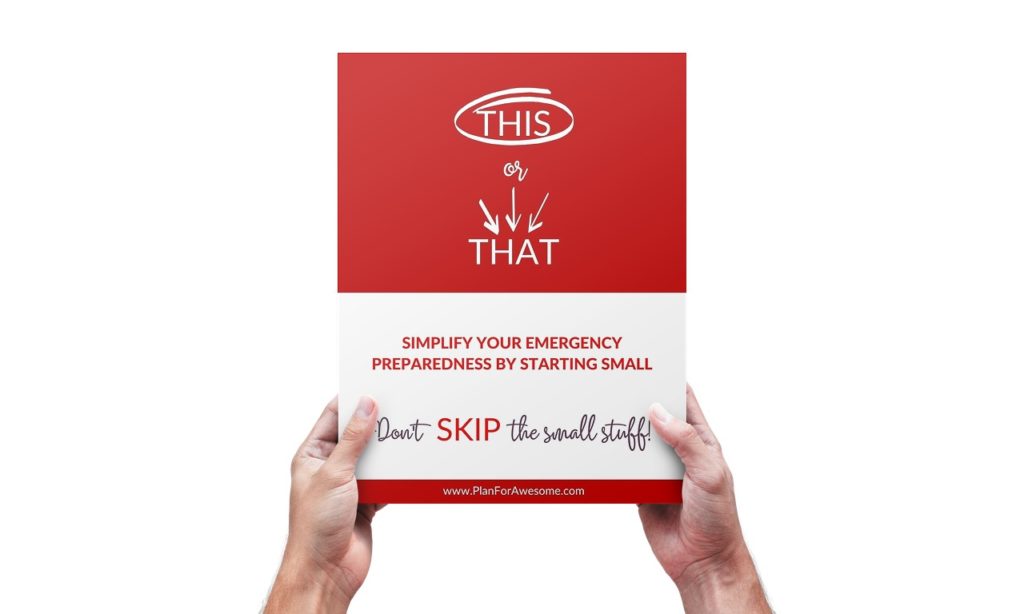
How to Organize Your Medical Information
Having a system in place for storing documents is essential. This is how to easily organize your medical information the right way without losing your mind.

Buying life insurance really doesn’t sound all that fun. And it’s hard to know if you’re getting truthful answers if you’re not sure which life insurance policy is right for you. This is a place to get your questions answered without wondering if you’re being “sold to!”
**This post contains affiliate links, which means if you click on a link and make a purchase, I may make a small commission at no extra cost to you.
I am fortunate to have unique access to someone who is a licensed insurance agent: my very own brother! He is kind, patient, and genuinely wants to help people protect their families. I have learned so much from him about life insurance, so I asked him to share some knowledge with you.
To be clear, this is not a marketing tactic. In fact, he requested that I not include his name. This is not a way for him to drum up business. The sole purpose of this post is to educate, and to give you the confidence you need in order to get things going in this area of your life!
So I am just going to let him take it from here…
*Disclaimer: This life insurance post includes general information. It is not intended to be an official recommendation. Every person has unique needs that should be handled with individual conversations. The following information and examples are to encourage you to do your own research and advocate for yourself before buying life insurance.
You don’t need life insurance. It does not benefit YOU. When you die, you’re not taking that money with you. Life insurance only benefits the loved ones you leave behind when you pass on. It helps fund the needs they will have and make possible the things you would have funded financially if you were still alive.
If you really need convincing, here’s the less gentle way to say it: if you care about anyone in your life, you need to have a life insurance policy.
I get it; life insurance can be a daunting topic. Especially if you have little knowledge and are operating under guilt and “duty.” Let’s get you educated and empowered to make the best decision for you and your family. Because if you don’t already have one, then the answer to “When should I get a life insurance policy?” is NOW.
There is one more common line of reasoning or “argument” for not getting a life insurance policy that I would like to challenge. I’m talking about the person who has a bunch of money saved that they intend to leave as an inheritance for their kids (or they have their house paid for and assume that their kids can just sell their home to pay for any existing expenses).
That is very generous. And wonderful that they are in such a strong financial position. But what a large net worth can’t necessarily buy, is time. The sale of a home or the process of dispersing inheritance can be extremely lengthy when it has to go through probate.
In the mean time, there are bills to pay:
Even if you’re wealthy, having a life insurance policy can be a strategy to get your beneficiaries money quickly and without tax burdens.

Getting your life insurance squared away is a lengthier process than a lot of people realize. But don’t let that discourage you!
Just take it one step at a time.
Ask your friends and family for agents that they have had a positive experience with, and call them to get started.
There is going to be an application process. It will include quite a few questions about medical history and current health, including:
Once you’ve applied for the insurance, it takes an average of 3-6 weeks for the company to verify records, pull medical histories, order medical exams if necessary, and finally for underwriters (once they have all that information) to figure out if you are approved and at what rate. It’s very possible that you could be declined due to something in your history, or they could counter with higher premiums or a lower policy amount.
As part of the application process, you should go through what is commonly known as a “needs analysis” to determine what type of policy and how much is needed. If your life insurance agent is just trying to make a sale, they will most likely quote you a standard amount (ie 10 years, $100,000) of term without actually asking you any exploratory questions. If that’s what happens… walk out of the office. Seriously. You do not owe them anything.
A life insurance agent who is passionate about their career will listen to your unique needs. They will request both heads of the household to be present at an in-depth meeting with you. And they should ask the following questions (or something similar):
Permanent and term are the two most common types of life insurance policies. They are not necessarily all encompassing, but they’re likely what you are familiar with. There are other names you may have heard being tossed around, such as variable, indexed and universal. Those policies would still fall under permanent or term, and they are typically used as investment vehicles.
There is a misconception that you have to choose one type of policy, but permanent and term policies have different benefits, so they are commonly used together.
For example, if a husband and wife have 2 or 3 young kids, they may want to consider a combination of term and whole life policies.
No one wants to need life insurance. But in the unfortunate event that you do need to cash out a policy, you will be so grateful that you have one. Contact your insurance agent right away. They should walk you through the process:
I take great pride in caring for my clients and their loved ones, and try to help the process to go smoothly. Many people are highly motivated to get an insurance policy because of their genuine and heartfelt concern for their family. But that does not mean that they have personally shared their last wishes and desires with me. Life insurance is just one of the things to be considered when preparing for death.
If you have not already checked out Mel’s Info Hub, I would highly recommend at the very least filling out the Estate Planning section.
As an insurance agent, I can help family members put one foot in front of the other through the process of cashing out a life insurance policy, but the Estate Planning section of the Info Hub will give you the comfort and peace that only a family member can provide.

Having a system in place for storing documents is essential. This is how to easily organize your medical information the right way without losing your mind.

Planning for the end of life isn’t all that fun, but it doesn’t have to be hard. Take a look at this estate planning guide checklist and you’ll see it’s easy.

Why you should schedule an emergency preparedness weekend every 6 months, and what you should be doing, reviewing, rotating, and maintaining. Free printable checklist!
